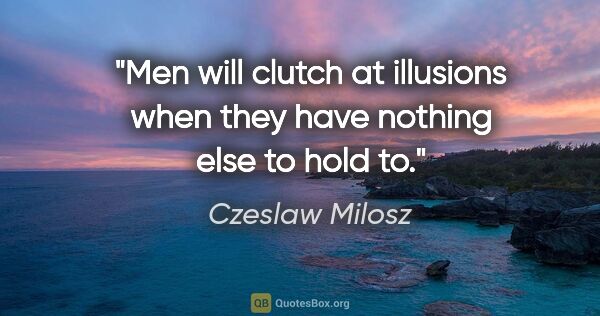Nothing Quotes (page 154)
HAMLET [...] we fat all creatures else to fat us, and we fat ourselves for maggots. Your fat king and your lean beggar is but variable service, two dishes, but to one table; that's the end.
CLAUDIUS Alas, alas.
HAMLET A man may fish with the worm that hath eat of a king, and eat of the fish that hath fed of that worm.
CLAUDIUS What dost thou mean by this?
HAMLET Nothing but to show you how a king may go a progress through the guts of a beggar.
William Shakespeare
With me, the present is forever, and forever is always shifting, flowing, melting. This second is life. And when it is gone it is dead. But you can’t start over with each new second. You have to judge by what is dead. It’s like quicksand … hopeless from the start. A story, a picture, can renew sensation a little, but not enough, not enough. Nothing is real except the present, and already, I feel the weight of centuries smothering me. Some girl a hundred years ago once lived as I do. And she...
Sylvia Plath
There is nothing more terrible, I learned, than having to face the objects of a dead man. Things are inert: that have meaning only in function of the life that makes use of them. When that life ends, the things change, even though they remain the same. […] they say something to us, standing there not as objects but as remnants of thought, of consciousness, emblems of the solitude in which a man comes to make decisions about himself.
Paul Auster
Like many Americans of his generation in this awkwardest of post-Imperial decades, an age suspended between exhaustion and replenishment, between input too ordinary to process and input too intense to bear, Sternberg is deeply ambivalent about being embodied; an informing fear that, were he really just an organism, he'd be nothing more than an ism of his organs.
David Foster Wallace
I don't know whether this world has a meaning that transcends it. But I know that I do not know that meaning and that it is impossible for me just now to know it. What can a meaning outside my condition mean to me? I can understand only in human terms. What I touch, what resists me--that is what I understand. And these two certainties--my appetite for the absolute and for unity and the impossibility of reducing this world to a rational and reasonable principle--I also know that I cannot...
Albert Camus
None of our men are 'experts.' We have most unfortunately found it necessary to get rid of a man as soon as he thinks himself an expert because no one ever considers himself expert if he really knows his job. A man who knows a job sees so much more to be done than he has done, that he is always pressing forward and never gives up an instant of thought to how good and how efficient he is. Thinking always ahead, thinking always of trying to do more, brings a state of mind in which nothing is...
Henry Ford

Somebody at one of these places asked me: "What do you do? How do you write, create?" You don't, I told them. You "don't try". That's very important: not to try, either for Cadillacs, creation or immortality. You wait, and if nothing happens, you wait some more. It's like a bug high on the wall. You wait for it to come to you. When it gets close enough you reach out, slap out and kill it. Or if you like it's looks, you make a pet out of it.
Charles Bukowski
She was nervous about the future; it made her indelicate. She was one of the most unimportantly wicked women of her time --because she could not let her time alone, and yet could never be a part of it. She wanted to be the reason for everything and so was the cause of nothing. She had the fluency of tongue and action meted out by divine providence to those who cannot think for themselves. She was the master of the over-sweet phrase, the over-tight embrace.
Djuna Barnes
At ten, she was moreover noisy and wild, hated confinement and cleanliness and loved nothing so well in the world as rolling down the green slope at the back of the house. At fifteen, appearances were mending; she began to curl her hair and long for balls; her complexion improved, her features were softened by plumpness and colour, her eyes gained more animation, and her figure more consequence. Her love of dirt gave away to inclination for finery, and she grew clean as she grew smart. To...
Jane Austen

